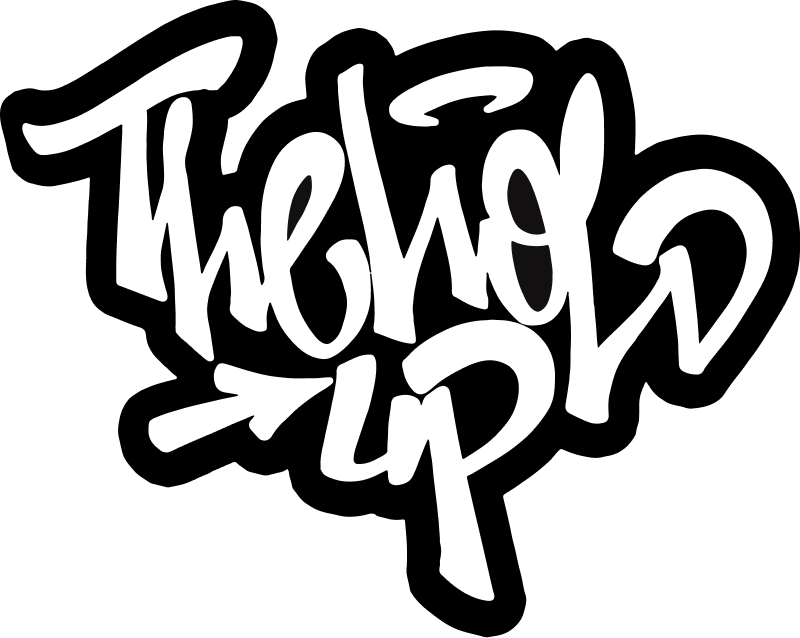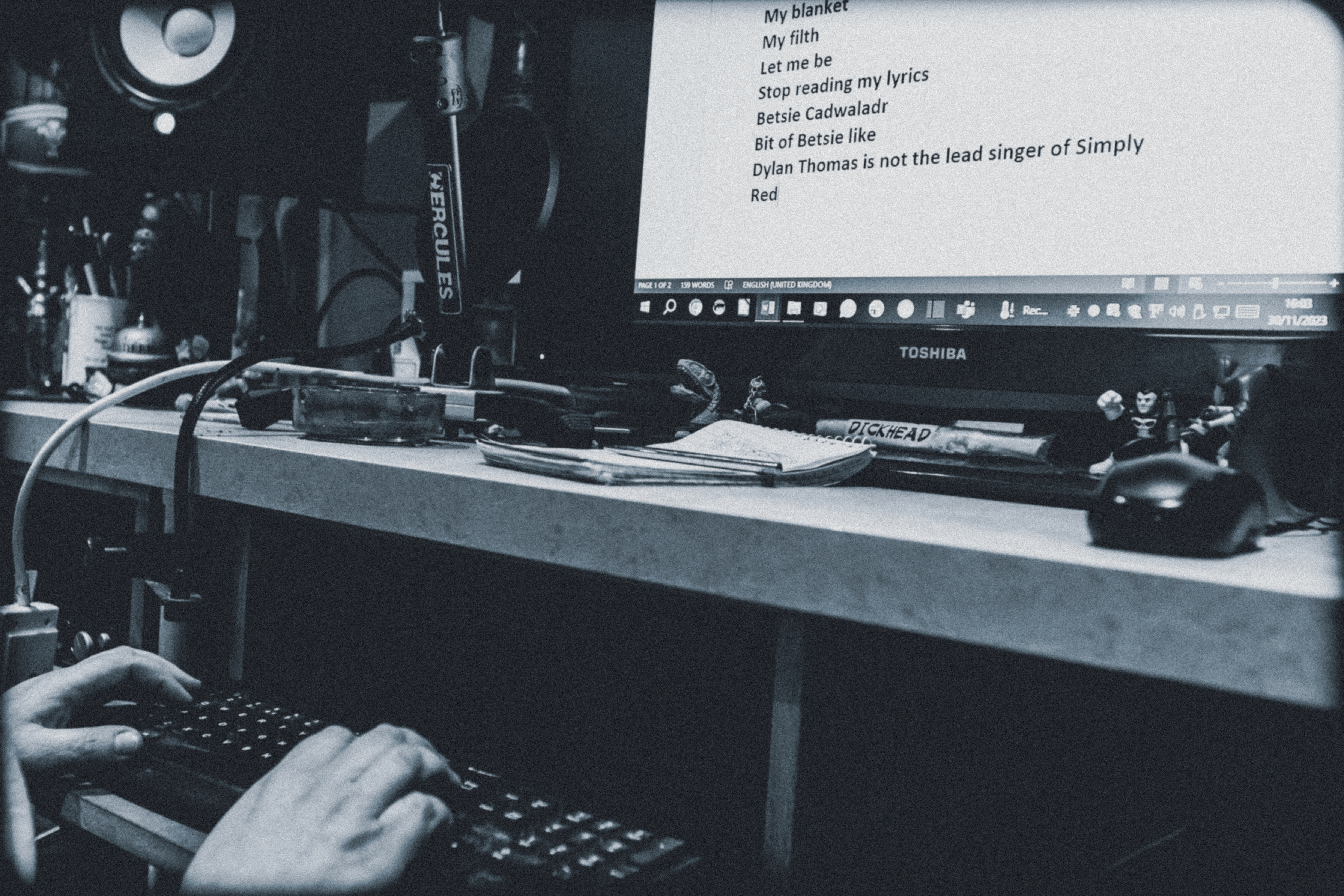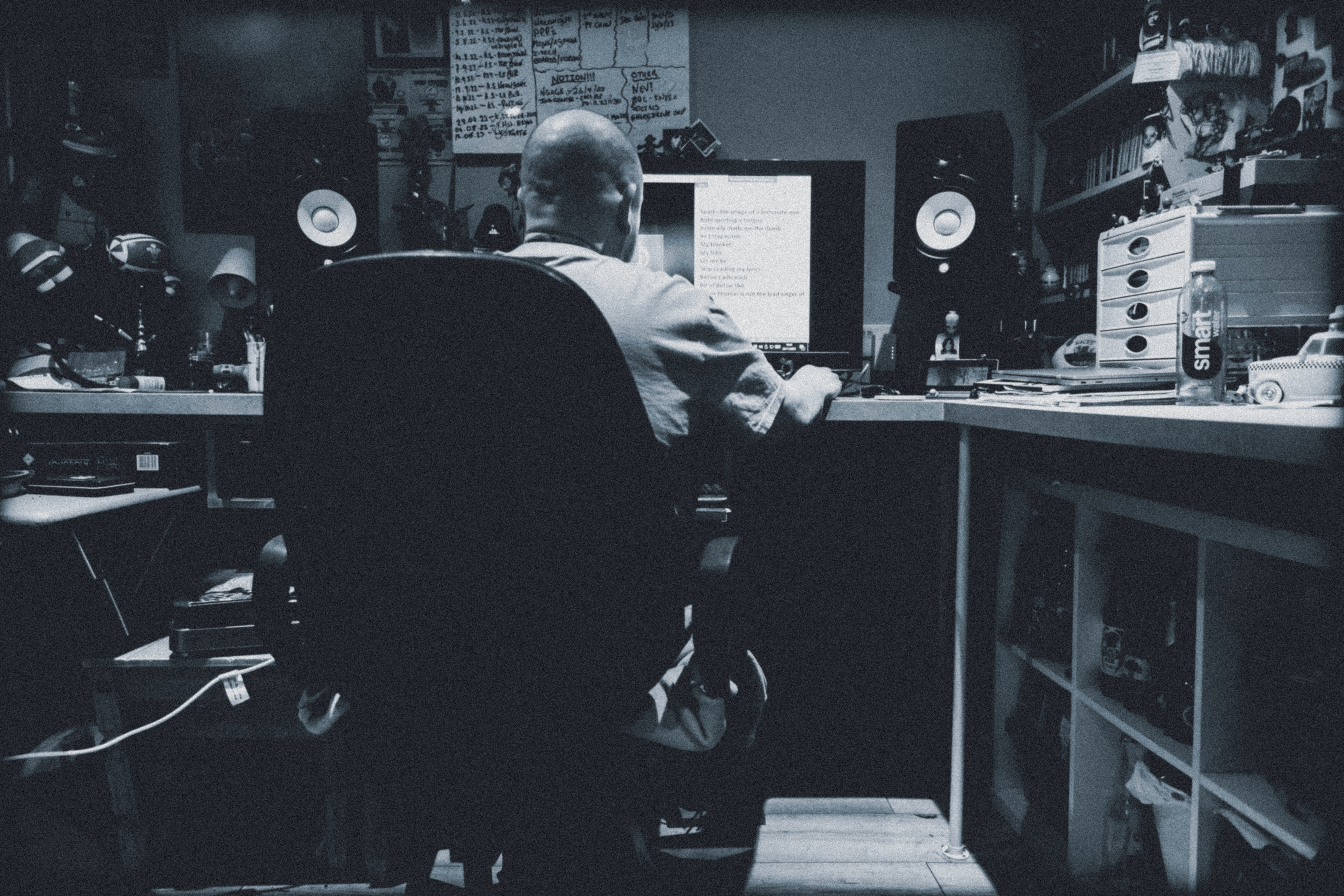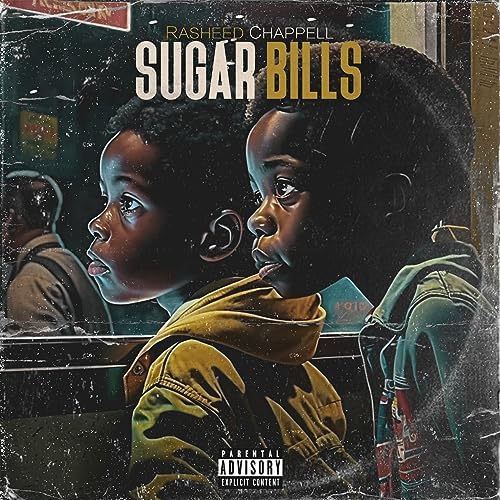When I started in 1997/98, it’s fair to say that I didn’t have a clue about what I was or, should be doing. All I knew was that I loved music and had done so since as far back as I can remember.
I met up with a group of musicians in college who I became very close with and still, to this day, consider them to be close friends. It was through these guys that I was inspired and encouraged to write lyrics, continuously. I was shown mic techniques, studio/recording techniques, studio setups and processes, building my studio setup (from basic to one a little more advanced), performance techniques, collaborative writing both lyrically and musically, how the industry works in general, what a music deal actually is and the etiquette surrounding all of the above.
I learned the importance of networking with other artists, improving yourself by drawing inspiration and learning from your peers and that practice most definitely improves. Striving for perfection is key, but knowing and understanding that there is always something more to learn, adapt to, or improve on is what motivates and inspires us to keep going.
I am not an expert but I can certainly show you some of the things that I’ve picked up over the last 25 years or so and my hope is that you’ll get something from it. This is The Hold Up way. . . Each one, teach one!
Pun x
Where to start?
If, like me, you chose lyric writing as your musical or creative endeavour, then just writing words is fine, but working on your chosen craft is what can set you apart from the rest. Carrying a ‘pen and pad’ with you wherever you go is a must for most. You can keep it traditional or just use any means you can: a notepad app on your phone, sending yourself messages, or even writing things down on bus tickets or paper napkins. I personally have a notepad on my phone. I sometimes send myself verses on WhatsApp and if I’ve got the means to, I will carry a paper notepad or, at the very least, a few pens with me on my travels.
This is fine for getting your words down but how do we improve on what we’re writing?
The simple answer to this is to keep writing. There’ll be things you love and there’ll most definitely be things you hate but persistence is a good way to improve.
Practice what you write, go over what you’ve written and embed them in your head, especially if you intend to read them out loud in front of people. This is also a good way to edit your pieces so you can get comfortable with how you deliver them. Always writing and practicing your words are two of the most important things for any lyricist to be doing.
Try not to throw away any lyrics you don’t like; there could be a line or small segment there you may still be able to work with or take inspiration from. Think of them like a word or phrase bank; inspiration can be taken from things we write or say as well as what we get from others. Try not to overcrowd your bars; if you’re struggling to fit all your words into the rhyme, then try taking some out. Remember, you have a poetic licence; missing a few words for flow and breath doesn’t mean you’re not saying the same thing.
Inspiration for writing can be taken from films, media, books, comics, and whatever ‘floats ya boat’. Listening to music is something that can spark a writing spree. Take little bits of inspiration from the full range around you but never take full bits from any one artist; that’s biting someone and you will get called out – Hip Hop 101 – ‘Be True to yourself’
There are also many creative writing exercises to help you put pen to paper, as it were; just search for some online. A favourite of mine is finding a random object close to you and trying to say some words about it, give it a background story, have a laugh with it, and play about with its concept. If it’s a shoe, then does it have a soul? (Sorry.) This can also help when writing in a ‘flexing’ style or if you want to take a shot at battling by being able to look at something or someone and comment, with flow and more playful content.

Subject matter: what should we write about?
Personal life experiences are always a good place to start. As we know the stories of those better than anyone else, you already have a full story in front of you, so take from it. This can be done literally or even through an emotion evoked by a memory. A lot can be said from a feeling, especially from something that is or was personal and important to you. You could also try writing about a point in history that has inspired you in some way, a cause that’s personal to you or even one you strongly oppose.
NOTE: Be careful when being personal and be sure about what you wish to share. A good lyricist wears their heart on their sleeve but it’s important for us all to remember how vulnerable this can make us. Expect scrutiny and take constructive criticism. Not everyone will like what you do but ultimately, you should do what you feel comfortable with.
General life experience and occasionally doing things you wouldn’t normally do—going outside of your comfort zone—all contribute to an improved knowledge of self, teaching us what’s important to us. This can add definition and purpose to your words so that the passion of our convictions are shown on paper as much as if spoken aloud.
When my eldest boy was about 6, he started to show a real interest in Hip-Hop and rapping in particular. He wanted to give it a go so once we got a beat that he liked, he asked me what he should rap about. I told him to rap about what he’s interested in or what he likes. So he wrote a song about slush puppies and he went off on one (the boy really did enjoy a slush) and it was a banger too fair play, though as it stands, I’m fairly sure he would not agree with me now. (Yes, I do still have a copy and it is available on request.)
Expand your vocabulary
The more words you know, the more you’ll have to choose from when writing. There are many ways to learn new words and understand the different ways you can use them. Generally, most people would say that reading more is the best way to do this. However, I’d love to say I’m a well-read person but I’m not. In truth, I can’t get past more than a page of most books before I’m bored. I’m not proud of this and there are definitely some books I’ve read that I love, but I’ve always struggled with it. I suppose I’m saying don’t be put off by this. I don’t read books but I do read comics, play games, watch documentaries and films, listen to podcasts, watch the news, read the odd article, converse with and listen to people and if I’m unsure of a word or its meaning, I ask someone about it or look it up. Most importantly, I do most of these, if not all of them, daily.
Every little thing can add to your personal lexicon and this, coupled with life experience, gives further context to our feelings, allowing a plethora of options when it comes to writing. The issue then becomes, deciding where to start.
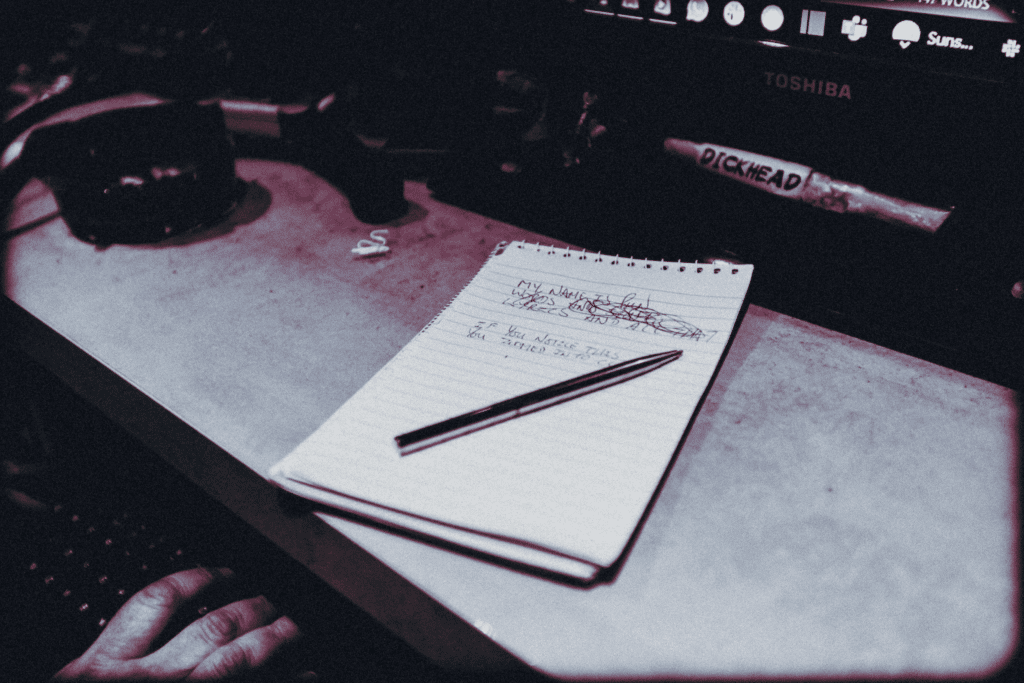
Writer’s block
Don’t get down about the periods where you just can’t seem to write; it happens to everyone pretty much. Writer’s block is something that exists in all forms of creativity in one way or another and is a big part of the process. Take 5, go have a chill and then come back to it. This is not the answer but then, neither is getting stressed about it; it will come back.
You could also try going back to what inspires you to write on a ‘normal day’, play some music, listen to podcasts, watch a film, etc.
summary
- Write constantly
- Practice often
- Make sure you have the tools to help you write with you at all times
- Try not to throw lyrics away
- Try not to cram too many words into a line
- Have fun with it
- Go to your local shows and events
- Speak and connect with the Hip-Hop/musical community
- Learn from and pass on
- Take Inspiration from the things you enjoy or are passionate about
- Take inspiration from life experience, the people and things around you
- Be careful about sharing your personal experiences
- Take constructive criticism
- Be true to yourself
- Expand your vocabulary
- Try not to stress when experiencing writer’s block; it happens to all of us, and the struggle is real!
